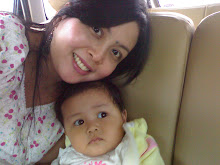| Teething usually starts around five to six months but the age at which this occurs may vary widely. - First Teeth
- How to help you baby during teething
- Cleaning Teeth First Teeth Some children are born with teeth and some may not get any until after their first birthday. Early teething does not indicate your child is going to be forward with other developmental processes and late teething does not indicate your child’s development is delayed. A young child will have 20 teeth, called deciduous teeth (baby teeth); these teeth are gradually replaced by 32 permanent teeth. Most babies cut their two lower incisors first, then the two upper incisors appear shortly after, followed by the two lateral incisors on either side, first at the top, then the bottom. Teething affects every baby differently; some babies teeth just pop through without any fuss whilst others find teething upsetting and painful. Signs of teething Teething signs can include • Baby putting fist into mouth • Red cheeks or ears • Drooling • Grizzly and generally unsettled How to help your baby during teething If your baby is unsettled during teething some things to try include; • A teething powder or gel from the chemist. Follow instructions for usage on the pack • A teething ring to chew on; some teething rings can be cooled in the fridge. • Cold things to suck which are clean & firm egg: chilled fruit. To prevent choking wrap the fruit in a muslin cloth first. • Crusts or dusks to chew on • Sucking is soothing so offer extra fluids If you baby starts biting while breastfeeding stay calm, say ‘no’ firmly, stop feeding and wait for a few minutes before starting feeding again. Cleaning Teeth
It is a good idea to start cleaning your child’s teeth as soon as the first tooth appears. Use a child’s toothbrush with a small head and soft bristles and fluoridated toothpaste. Even if he only sucks or chews on the toothbrush he will get used to having a toothbrush in his mouth. A blob of toothpaste the size of a pea is ample for young children. Alternatively you can use a soft cloth and a very small smear of fluoride or junior toothpaste until baby is around one year old. |
TEETHING
Labels: little treasures, mom and baby info
Subscribe to:
Post Comments (Atom)

No comments:
Post a Comment